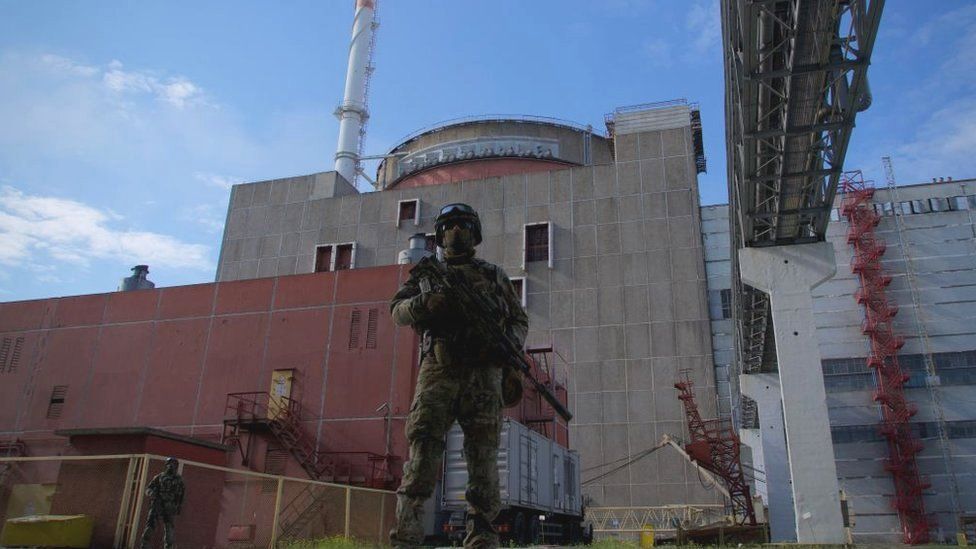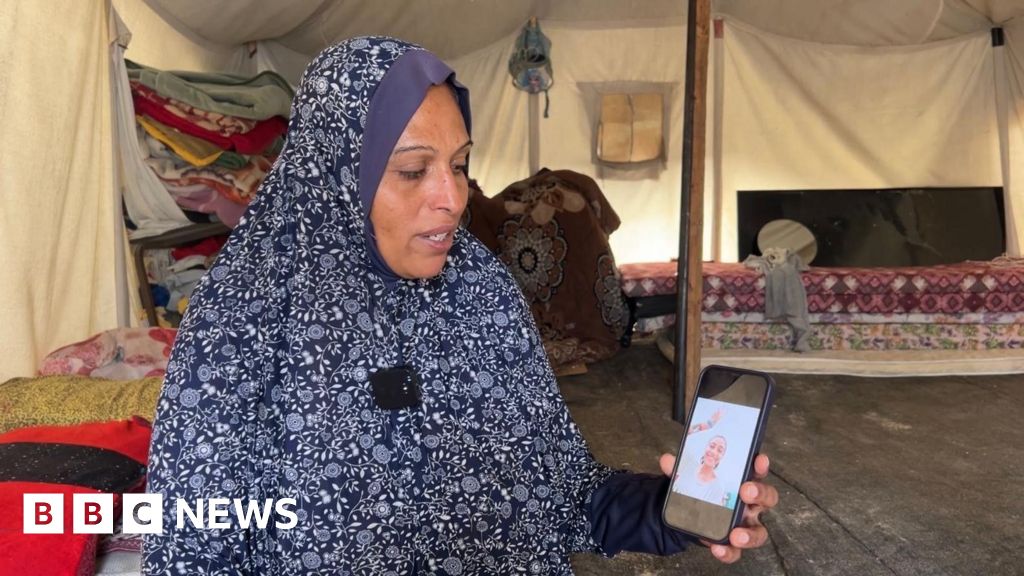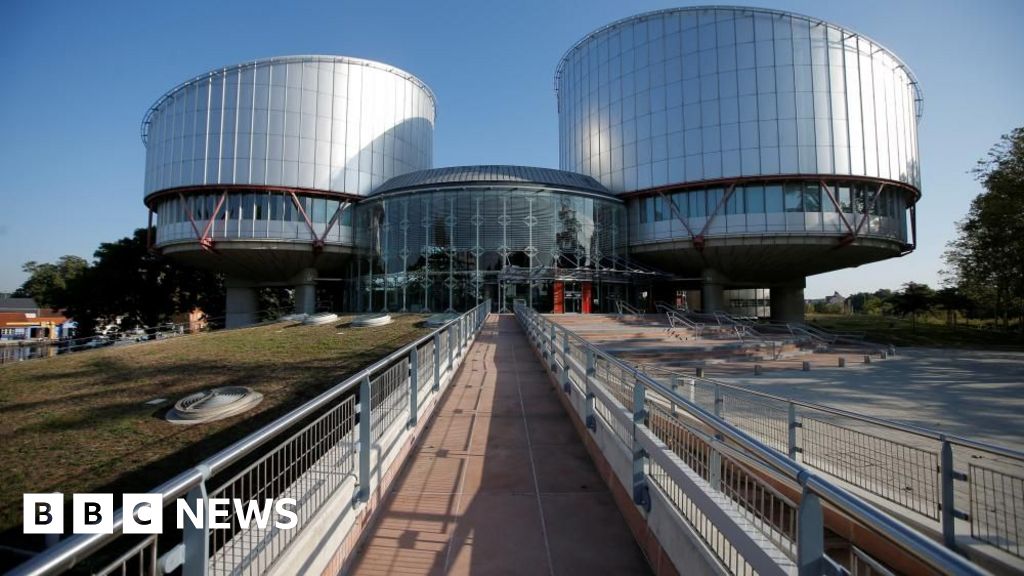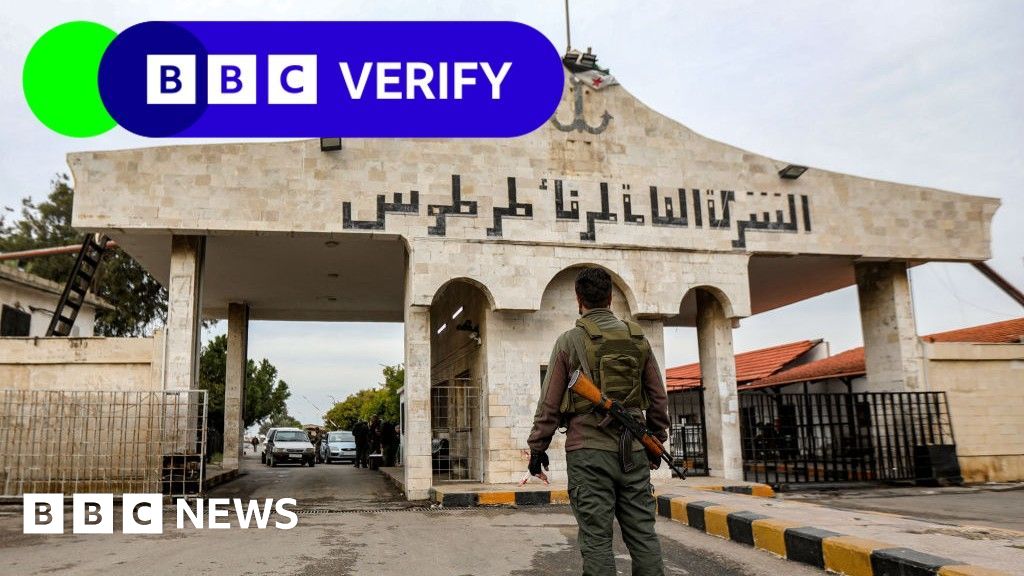ARTICLE AD BOX
By Hugo Bachega
BBC News, Odesa
 Image source, Getty Images
Image source, Getty Images
Zaporizhzhia nuclear plant has been under Russian occupation since march, with Moscow accused of turning it into a military base
Military activity around the Russian-occupied Zaporizhzhia nuclear complex in southern Ukraine must end, and inspectors should be given access to the facility, the UN secretary-general has said.
In an interview with the BBC in Odesa, Antonio Guterres said the situation at the nuclear power plant, Europe's largest, was "very confusing", as Russia and Ukraine blame each other for shelling the site, tensions that have raised fears of a catastrophe.
Ukrainian officials say Russia has turned the complex into an army base - deploying military equipment, weapons and about 500 troops who are using the site as a shield to attack towns across the Dnipro River, knowing that Ukrainian forces are unlikely to retaliate.
Russia denies the accusations, and says its troops are protecting the plant.
"Of course I'm concerned," Mr Guterres said.
"When you have military activity, bombardments close to a nuclear power plant, this is a matter of concern for everybody.
"I hope that it'll be possible to start engaging in a way that will, at least for the moment, end all military operations."
Ukrainian president Volodymyr Zelensky has repeatedly accused Russia of "nuclear blackmail", and some officials claim Russia has fabricated a crisis to force Ukraine and other countries to comply with their conditions, as the nearly six-month old war seems to be at a deadlock.
The claims cannot be independently verified, as the site has been under Russian occupation since early March.
Ukrainian technicians still operate it, however, and some say they are being kept at gunpoint. The plant's operator says the station, for now, remains safe, but has warned that Russia may attempt to disconnect it from the Ukrainian grid.
Mr Guterres' call for the creation of a demilitarised zone around the complex has been rejected by Moscow, which claims it would make the facility "more vulnerable". He responded saying "there's a long way for serious discussion", without getting into detail.
Similarly, there has been no deal to give access to monitors from the UN's nuclear watchdog, the International Atomic Energy Agency (IAEA).
But Mr Guterres hinted at "discreet diplomacy" and referenced the deal that allowed Ukraine to resume its grain exports.
The agreement, brokered by the UN and Turkey, came after a months-long blockade imposed by Russia that worsened a global food crisis, and is the only diplomatic breakthrough in this conflict so far.
Odesa, where Mr Guterres was visiting on the second day of his trip to Ukraine, is one of the three ports that reopened under the grain deal.
He hailed what he called an "unprecedented agreement" between two countries at war and, after visiting a ship being loaded, said: "You can't imagine the emotion I felt having helped negotiations that allowed Ukraine to resume its grain exports."

 2 years ago
21
2 years ago
21








 English (US) ·
English (US) ·